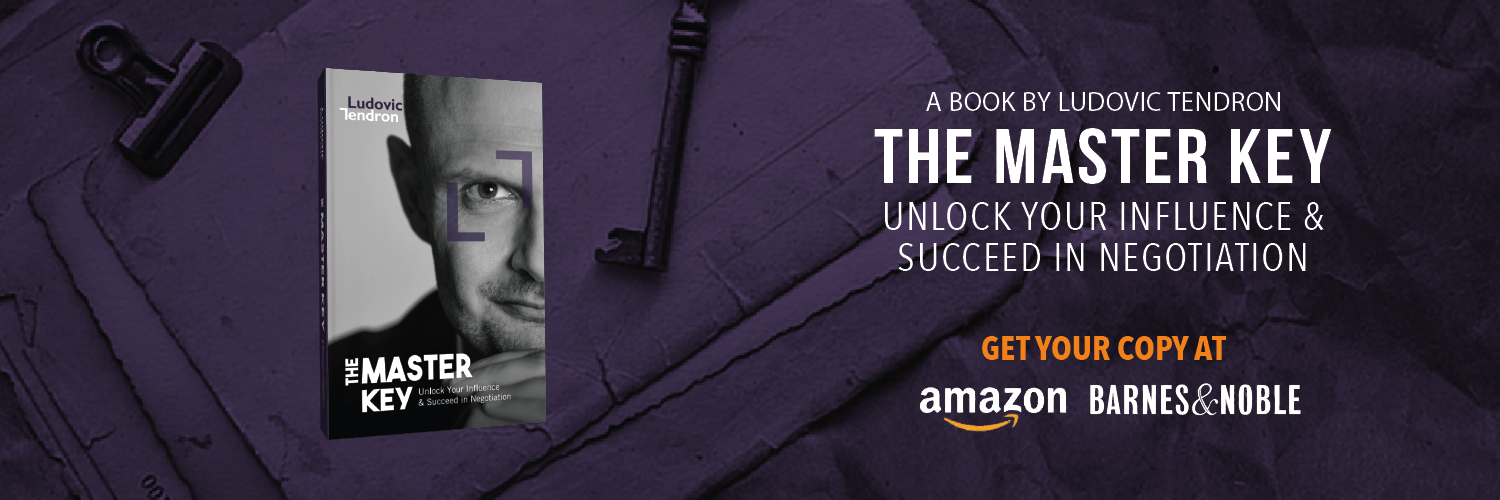“Oysters open completely when the moon is full; and when the crab sees one, it throws a piece of stone or seaweed into it and the oyster cannot close again so that it serves the crab for meat. Such is the fate of him who opens his mouth too much and thereby puts himself at the mercy of the listener.”
Perfecting the art of silence in negotiations can be a powerful skill giving a serious advantage to the one who can use it wisely.
We live in a world of noise where silence has almost ceased to exist to an extent that silence becomes awkward. We are surrounded by sounds (cars, planes, construction, TV, music, etc.).
We also live in a world of growing impatience despite advanced cars and time-saving tools. We do not pause enough. “In the corporate world, a perennial time-scarcity problem afflicts executives all over the globe (…)” - The Economist - Why is everyone so busy? Dec. 20th 2014.
With business negotiations, we see many people leading the conversation (to be sure they can post all their arguments), counter-attack any argument or interject whenever a person pauses. They feel that they have the upper-hand.
There are also situations where an employee at a meeting feels the need to speak and to shine in front of his/her superiors.
These strategies have to be re-considered. Here are 5 good reasons to use the tactics of silence in negotiations:
1- Silence Is A Way To Destabilise A Speaker
Silence is uncomfortable for many people. They expect words from you more than silence. Most humans cannot actually resist silence.
Some studies even show that the constant accessibility and exposure to background noise make many people fear silence. Others have calculated the time it takes for silence to generally become uncomfortable: 4 seconds!
Human beings have a constant need to analyse, interpret and understand. The lack of answers or laconic answers to questions can be destabilising. Questions like “why he/she is not saying anything? What is he/she thinking?” will naturally come to mind.
2- Silence Allows You To Receive More Information And To Adjust Your Speech
Silence pushes the speaker to fill in the void, share more information and explain in greater detail.
The more a person talks, the more he/she runs the risk of disclosing too much information, giving clues on his/her strategy and making mistakes…to the advantage of the listener.
The French humorist Pierre Desproges used to say: “It’s better to look stupid than to open your mouth and leave no doubt about it”.
Once regretful words have been put out there, it is often too late. Better control them.
Silence also offers the advantage of being able to adjust your speech depending on what is disclosed by your counter-part. The advantage of listening is to acquire information that could leverage your strategy and improve your arguments. It is aslo important to digest the information and adapt to the discussion as it unfolds.
3 – Silence Empowers You
Robert Green, author of The 48 Laws Of Power, wrote: “Power is in many ways a game of appearances, and when you say less than necessary, you inevitably appear greater and more powerful than you are”.
You may have noticed that charismatic and powerful people do not speak much. Why? Because they listen first, analyse and choose their words wisely. “Be silent or let the words be worth more than silence,” as Pythagoras used to say. People talking too much may give the impression of justifying themselves and appearing weak. This is probably why powerful people tend to let their subordinates comment first in meetings.
It may carry more weight to let everyone talk first and give your opinion at the end with all cards in hand.
The less you talk, the deeper, enigmatic and powerful you look.
In Greek, the translation of “silence” is the word “mysterion”, which means something not expressed or held in silence. Silence carries mystery, which gives a hint of seduction.
4 – Silence Gives Impact To Your Words And Draws Attention
It is important to have pauses to follow your sentences. The more you pause the better chance you have to be understood by the other party and therefore send the right message. If you shower the listener with words, his/her attention will lower.
Silence between sentences gives more clarity to your speech. It prevents the listener from getting lost and losing interest. However, you may vary the length of your pause to emphasis a particular subject.
Silence can also help gain or regain more attention when someone is monopolising the conversation. And it can stop a verbal attack and make the speaker realise that his/ her action is inappropriate.
Using pauses and silence is different from disfluency and hesitations, which affect the audience’s comprehension as shown by Dr Martin Corley and Lucy MacGregor, Edinburgh University's School of Philosophy, Psychology and Language Sciences, and David Donaldson of the University of Stirling (“Hesitation in Speech”).
Mark Twain, American author and humorist, once said: “The right word may be effective, but no word was ever as effective as a rightly timed pause”.
5 – Silence Forces You To Master Your Body Language
You can still effectively communicate in silence. Words are a small part of the communication process, accounting only 7% of it. Tonality and body language account for the rest according to Albert Mehrabian, Professor Emeritus of Psychology, UCLA, Decoding of Inconsistent Communications, relayed by famous coach Tony Robbins.
Powerful people are not always the best speakers, but they master body language that draws people to them.
Being silent does not mean refusing to engage such as nodding. Your body sends signals to the speaker and you should be in control of these signals. For instance, researchers, like Amy Cuddy from Harvard Business School, recently demonstrated that power poses can affect your hormone levels and help you to be more positively evaluated qwby others and even affect the way you behave.
Conclusion: Silence is a powerful tool in many contexts. Powerful people and good negotiators master the art of silence and play this subtle game. Speaking too much and not at the right time can weaken your position. Silence helps you to keep power.



